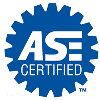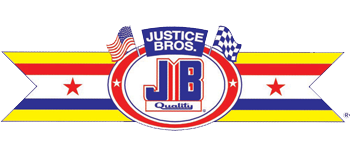
AUTONET TV
Archive for May 2022Why Alignment Matters (Vehicle Alignment Maintenance)Posted May 29, 2022 8:00 AMIt's one of those things that can happen on a multi-day road adventure or a quick trip to the grocery store. You hit a pothole, go too fast over a speed bump, nail a curb. When it happens, you think, "I wonder if that was hard enough to do any damage?" But things seem ok and you continue on your way. Keep in mind that any blow to your vehicle's suspension can throw it out of alignment. It can be a hard knock from the road or from another vehicle, such as being involved in a minor accident. When your suspension is out of alignment, it means that the wheels aren't all pointing where they should. And after a while, it can make your tires wear unevenly and cause problems with steering and handling. Let's go back to that pothole or curb you hit hard. Even though you think there was no damage done, if you wait until you see tire wear, you may need to replace all four tires, not an inexpensive proposition. That's why it's a good idea to make sure your alignment is regularly checked by a qualified technician. If you get regular oil changes (a MUST!), consider having an alignment check while your vehicle is in. That's especially important if you drive roads that resemble the lunar surface. If you buy new tires, it's also strongly recommended that you have your alignment checked. You can have your front wheels aligned or all four, and if your vehicle is newer, it's not a bad idea to spend a little extra for the four-wheel alignment check. Good alignment pays off with better steering and handling, less tire wear and—BONUS—better fuel economy since aligned wheels offer less resistance when they roll on the road. McPherson Automotive If You Drive Like a Maniac (Aggressive Driving is Bad for a Vehicle)Posted May 22, 2022 7:56 AMWhen someone mentions driving like a maniac, they're not talking about you, surely? Besides the safety issues of aggressive driving, you should know that your vehicle will last a lot longer if you'll just mellow out a little. Here are four traits good drivers follow if they want their vehicles to go the extra distance. Cool—The driver who can't wait to get to the next stoplight is just shortening the life of his or her vehicle. Jackrabbit starts and uneven acceleration hurts your engine because the valves and cylinder heads are stressed more. All of those moving parts will wear out faster as well as other components that are connected. That means things like the air conditioner, power steering pump… just about anything that attaches by a belt or a pulley. Oh, and you'll be generating more heat. Heat is one of a vehicle's worst enemies. Warm—If you get in your cold vehicle which has been sitting overnight, start it up and rev the engine high, you've just put a lot of stress on your engine. That's because you didn't let the oil (that's been sitting down in the oil pan at the bottom of the engine) get to the moving parts in order to lubricate them. Some manufacturers advise that you run your vehicle for about 30 seconds before you take off. And if it's really cold out, you may be wise to let the engine run for a minute or two before putting a load on the engine. Also, for the first 5-15 minutes, keep your RPMs on the low side and don't jam on the accelerator. Smooth—You're trying to get somewhere in a hurry and have to jam on the brakes while traveling pretty fast. Just that one time can do more damage to the brakes than you would think. Lots of hard braking can overheat your brakes and damage your rotors, wearing them out way faster than someone who drives with a smoother touch. Hard braking also strains suspension parts, tires and engine mounts. Smart—You know what PRNDL stand for. Those are the letters in your automatic transmission (Park, Reverse, Neutral, Drive, Low). Here are another couple of letters: IQ. A smart shifter never goes into R to D without completely stopping the vehicle, unless, of course, you're anxious to spend some big dollars on your automatic transmission. These days, it's common to get 200,000 miles/320,000 kilometers out of a vehicle, no problem. It just takes regular maintenance (oil changes and regular service) and one other thing. Showing off: showing off a little moderation in driving habits with a big payoff in the end.
When Are Your Tires Worn Out?Posted May 15, 2022 8:20 AM
Hey Du Quoin area drivers, are your tires worn out? What is the standard for our IL streets? How can you tell on your vehicle?
So what happened with the 2/32 inch/1.6 mm tires on the car? Get this – when the car had traveled the distance required to stop with new tires, it was still going 55 mph/89 kph. Stopping distance was nearly doubled to 379 feet/116 meters, and it took 5.9 seconds. McPherson Automotive
Don't Start with That (Bad Starter Motor)Posted May 8, 2022 8:18 AMWe've all heard that expression, "That's a non starter." When it comes to your vehicle, that's not music to a driver's ears. That sickening sound when you start the ignition and instead of hearing the engine crank, you hear it slowly turn over and your dash lights go dim. There can be many reasons a vehicle won't start, so here's a little history of how the starter came to be an important component of modern vehicles. You have to move the engine's components to start it. The first cars had a crank that the driver would insert into the front, then start turning things over by hand. When the engine started, you had to release that crank immediately or risk a broken arm. Yes, it happened many times. So, they came up with a better idea: an electric starter, which was a big advance in automotive technology. With this system, an electric motor rotated a series of gears that turned the gasoline engine's crankshaft so its pistons and parts moved and the engine drew in air. While this happened, electricity went to the spark plugs and fuel headed to the cylinders. When the gasoline engine caught, the starter quickly disengaged. Hey, no more broken arms! Modern systems use the same principle, so when your vehicle won't start, here are a few things to look out for that might point to the starter. If the engine turns over s-l-o-w-l-y, it may mean the electric starter motor may just be wearing out and doesn't have enough cranking power. Bushings, brushes, wire windings and a special switch called a commutator may be going bad. If when you engage the ignition you hear a faint click, that could be a symptom one or more of the starter's components have failed. If you hear a loud click, it could mean that an electrical switch called a solenoid may not be switching the motor on. If you hear your engine start to turn over but then it stops and is followed by a grinding sound, some gears may not be meshing the way they should. There may be many more causes (bad alternator, relay, battery, engine, key fob), so this is when it's time to turn it over to your service facility. Sometimes they can send out their own tow truck or recommend a reputable towing company. But it's best not to let it get to this point. Starter problems often give you advance warning that there is a problem with "almost" not starting or "almost" not turning over. So when you see that very first sign, "start" on over to talk this one over with your service advisor. The opposite of a "non-starter" is a starter, and that is music to anyone's ears. McPherson Automotive Air Conditioning Service in Du QuoinPosted May 1, 2022 8:05 AM
Do you hear loud noises under the hood when you turn on your air conditioner? Do you only get cool air sporadically? If so, it is time to get your air conditioner checked at McPherson Automotive in Du Quoin. McPherson Automotive | ||
SearchArchiveJuly 2018 (16)August 2018 (4) September 2018 (5) October 2018 (4) November 2018 (4) December 2018 (5) January 2019 (5) February 2019 (4) March 2019 (5) April 2019 (4) May 2019 (4) June 2019 (5) July 2019 (4) August 2019 (4) September 2019 (5) October 2019 (4) November 2019 (4) December 2019 (5) January 2020 (5) February 2020 (4) March 2020 (5) April 2020 (4) May 2020 (5) June 2020 (4) July 2020 (4) August 2020 (5) September 2020 (4) October 2020 (4) November 2020 (5) December 2020 (4) January 2021 (6) February 2021 (4) March 2021 (4) April 2021 (4) May 2021 (5) June 2021 (4) July 2021 (4) August 2021 (5) September 2021 (4) October 2021 (5) November 2021 (4) December 2021 (4) January 2022 (6) February 2022 (4) March 2022 (4) April 2022 (4) May 2022 (5) June 2022 (4) July 2022 (5) August 2022 (4) September 2022 (4) October 2022 (5) November 2022 (4) December 2022 (4) January 2023 (5) February 2023 (4) March 2023 (4) April 2023 (5) May 2023 (4) June 2023 (4) July 2023 (5) August 2023 (4) September 2023 (4) October 2023 (5) November 2023 (4) December 2023 (5) January 2024 (5) February 2024 (4) March 2024 (5) April 2024 (4) May 2024 (1) | CategoriesTires and Wheels (29)Maintenance (32)Diagnostics (3)Fluids (9)Brakes (11)Fuel System (27)Suspension (3)Emergency Items (1)Drive Train (7)Cooling System (7)Serpentine Belt (4)Engine Air Filter (2)Keys to a long lasting vehicle (2)Air Conditioning (8)Steering (7)Dashboard (2)Battery (7)Cabin Air Filter (5)Inspection (7)Fuel Economy (8)Exhaust (8)Safety (4)What Customers Should Know (37)Service Standards (10)Automotive News (4)Alignment (9)Auto Safety (4)Shocks & Struts (6)Windshield Wipers (6)Check Engine Light (4)Parts (4)Transmission (3)Service Intervals (4)Monitoring System (1)Fuel Saving Tip: Slow Down (1)Customer Detective Work (1)Older Vehicles (4)Oil Change (3)Timing Belt (5)Safe Driving (1)Alternator (2)Winter Prep (3)Water Pump (1)Tires (3)Trip Inspection (2)Headlamps (1)Tire Rotation and Balancing (1)Warranty (1)Brake Service (1)Differential Service (1)Wheel Bearings (1)TPMS (2)Spark Plugs (1) | |

OUR REVIEWS


Scott Phillips, 03/20/2024Always fair. Takes care of us for 20 plus years now. Paul and Erin are just the best.









